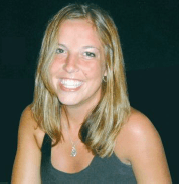
Our daughter, Shanna (Shan), was diagnosed with metastatic breast cancer following months of excessive bone pain, increased symptoms of ill health and parental concern. Shan was not diagnosed until the breast cancer had spread from her breast to her bones and then to her liver. Shan passed away less than four months after her diagnosis.
None of the primary care providers or the bone specialist who saw Shan during her illness had cancer on their checklist. Diagnosed with a more common condition, we were reassured that Shan would be fine. During numerous visits for medical follow-up, Shan continued to be misdiagnosed. Her symptoms increased and included unresolved bone pain, fatigue, headaches, nausea and weakness. We were very concerned and requested further testing. An abnormal liver function test finally alerted our doctor to something more serious and Shan was accurately diagnosed with late stage, metastatic breast cancer.
 From the initial onset of her symptoms, the physicians looked for what was common in an otherwise healthy 23 year old. When her symptoms persisted, the most devastating cause was not ruled out. Cancer was not on their radar. Too many teenagers and young adults with cancer face delays in diagnosis from either their own or physician inaction. As a result, valuable treatment time against an aggressive, insidious, often fatal disease is lost. For Shan, the war was over before she reached the battlefield. Cancer won!
From the initial onset of her symptoms, the physicians looked for what was common in an otherwise healthy 23 year old. When her symptoms persisted, the most devastating cause was not ruled out. Cancer was not on their radar. Too many teenagers and young adults with cancer face delays in diagnosis from either their own or physician inaction. As a result, valuable treatment time against an aggressive, insidious, often fatal disease is lost. For Shan, the war was over before she reached the battlefield. Cancer won!
Shan lost her life, her goals and dreams for the future. Her potential and that for society was also lost. Shan was a skilled lifeguard, talented artist, professional figure skating coach and university graduate heading off to teacher’s college. She had a passion for life and working with young children. Shan continues to be sadly missed.
Young women need to understand their risk of breast cancer. They need to be informed about the symptoms and self care strategies in order to know their bodies and know their breasts. They need the opportunity to self detect symptoms to increase the possibility of an earlier diagnosis. When symptoms are unexplained and persistent, young women need to be empowered to ask the question“Could this be cancer?”
Lorna Larsen (Shan’s Mom)


